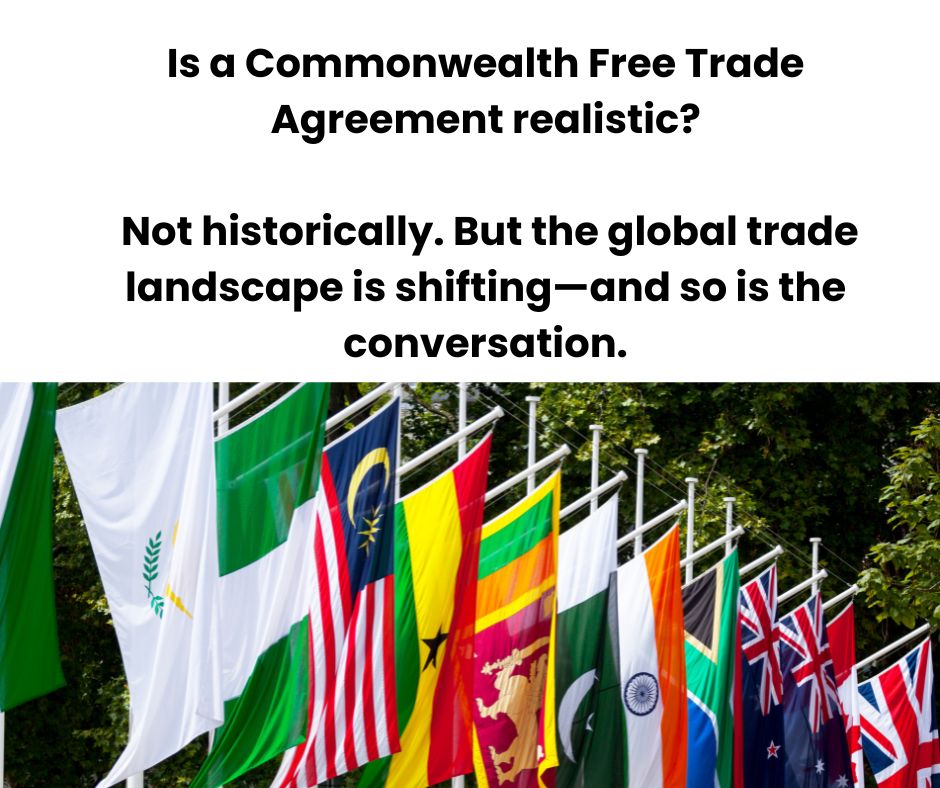Beyond Borders: The Commonwealth, EU, and ASEAN in a New Global Order

Historically, there has not been a strong drive for a Commonwealth Free Trade Agreement (CFTA). The economic diversity among Commonwealth nations, disparities in development, and differing geopolitical priorities have made such an agreement appear impractical. However, given the current global trade landscape, there is an increasing case for forging a trade and security alliance among Commonwealth nations—one that leverages shared values, legal systems, and historical ties, even if those origins were not always positive.
A New Vision for Commonwealth Cooperation
Rather than a comprehensive free trade agreement akin to the Comprehensive and Progressive Agreement for Trans-Pacific Partnership (CPTPP), a more flexible economic and security framework—like the Indo-Pacific Economic Framework (IPEF)—may be the answer. This would allow member nations to collaborate on specific strategic areas without the burden of full economic integration.
Such a framework would focus on:
· Trade Facilitation: Reducing non-tariff barriers and enhancing digital trade agreements.
· Tariff and Non-Tariff Barriers: Establishing mechanisms to gradually reduce or eliminate tariffs on key goods and services while addressing regulatory discrepancies that hinder trade.
· Investment Cooperation: Encouraging mutual investments in key sectors like technology, infrastructure, and green energy.
· Supply Chain Resilience: Diversifying and securing supply chains for critical goods.
· Security Collaboration: Enhancing intelligence-sharing, cybersecurity cooperation, and defence partnerships.
Leveraging Commonalities for Strengthened Alliances
Despite historical differences, Commonwealth nations share a foundation in common law, parliamentary democracy, and governance structures that foster trust and predictability in trade and diplomacy. Countries such as Canada, Australia, the UK, and India have robust economies and geopolitical influence, making them key players in a reimagined Commonwealth alliance.
Moreover, smaller Commonwealth nations could benefit from a unified economic and security strategy that strengthens their global standing and provides alternatives to dependence on any single power, including the U.S. or China.
Building Bridges with the European Union and ASEAN
An enhanced Commonwealth economic and security framework could also serve as a platform for deeper engagement with other regional blocs, notably the European Union (EU) and the Association of Southeast Asian Nations (ASEAN).
While Brexit has redefined the UK’s relationship with the EU, a collective Commonwealth-EU partnership could open new avenues for trade, security cooperation, and joint responses to global challenges. Given the EU’s emphasis on strategic autonomy and diversification of trade partnerships, a structured alliance with the Commonwealth could offer a dependable counterpart grounded in shared democratic values and economic interests.
Similarly, stronger Commonwealth-ASEAN collaboration could serve as a bridge between the Indo-Pacific and the wider global economy. Many ASEAN and Commonwealth countries already share overlapping memberships and regional priorities, especially in maritime security, digital innovation, and sustainable development. A coordinated approach could unlock synergies in infrastructure development, climate resilience, and regional stability.
Conclusion
The time may be right to rethink the Commonwealth’s role in global trade and security. A flexible, modern economic and security alliance—rather than a rigid free trade agreement—could create new opportunities while respecting the unique economic and political realities of its diverse membership. By reinforcing internal cooperation and building meaningful external partnerships with the EU, ASEAN, and others, the Commonwealth can become a more influential and resilient global player in the years ahead.